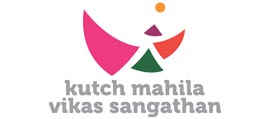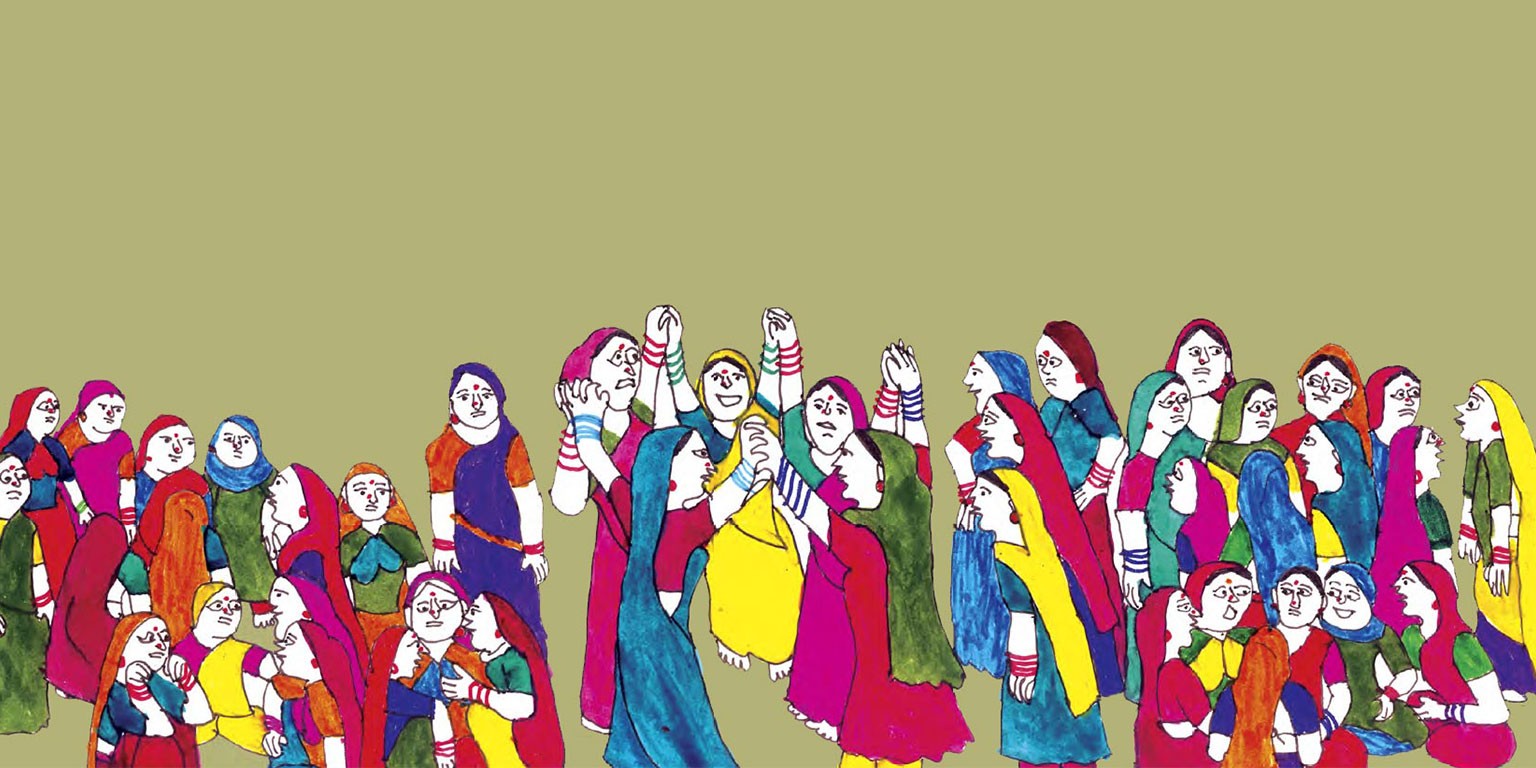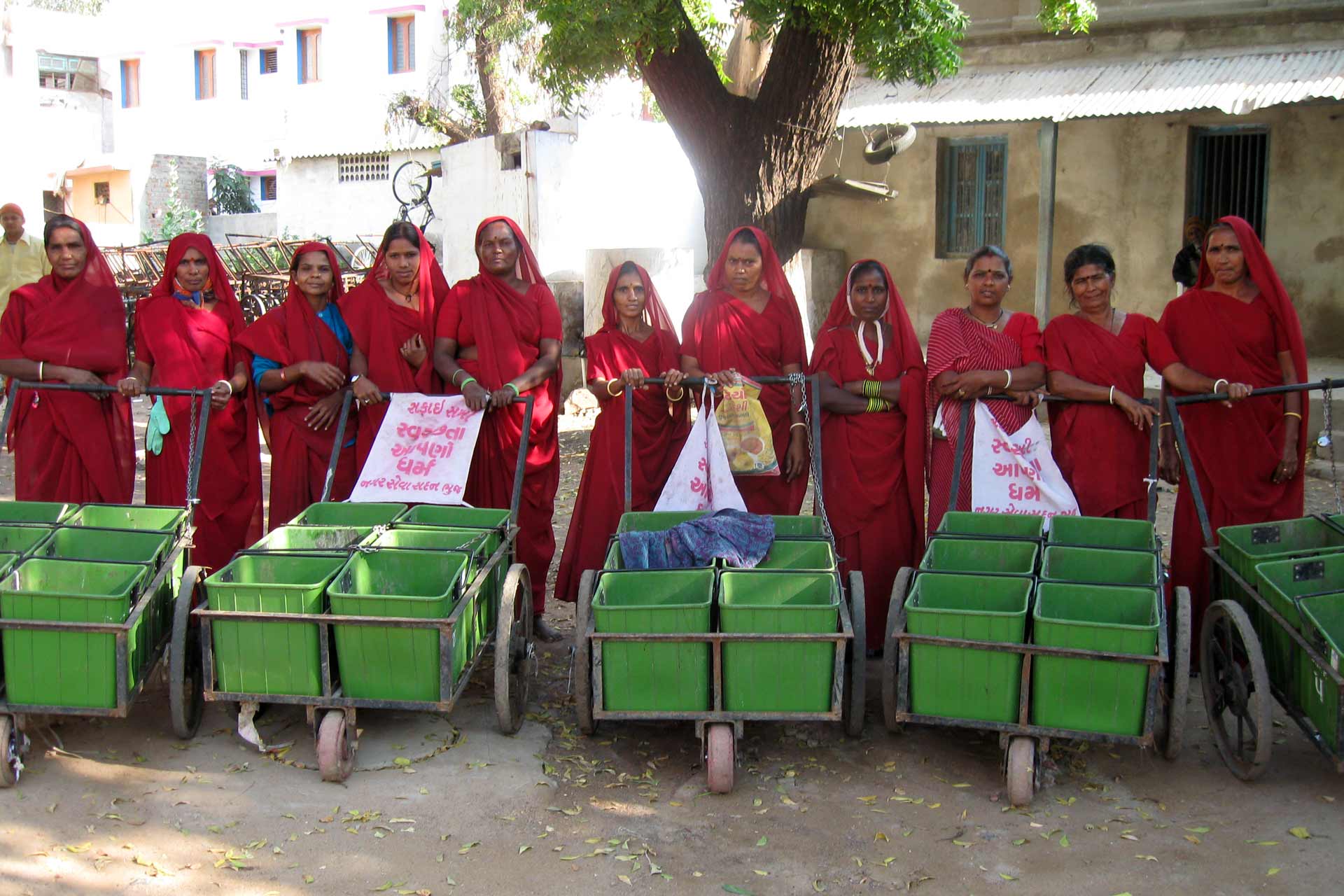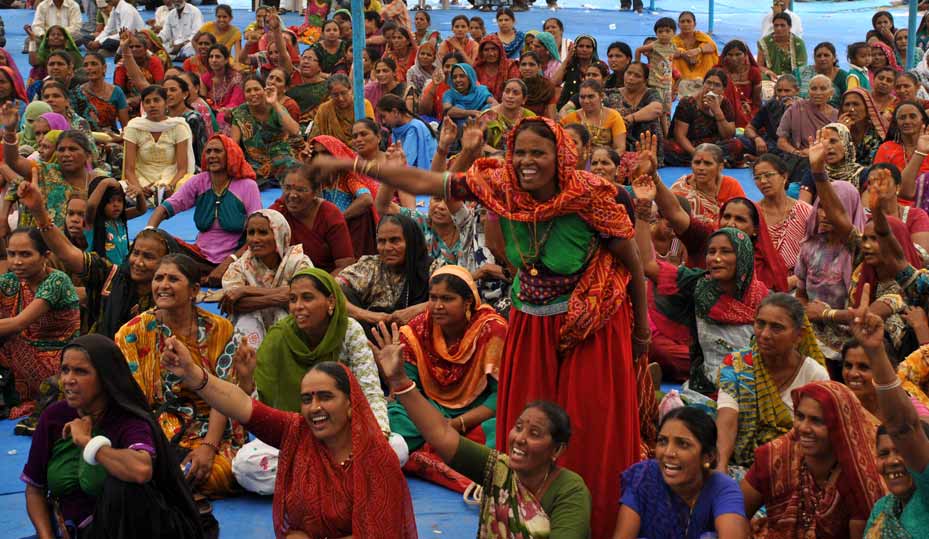Editor’s Note: FII’s #MoodOfTheMonth for March, 2022 is Women’s History Month. We invite submissions on the contributions of women, the trajectory of the feminist movement and the need to look at history with a gender lens, throughout the month. If you’d like to contribute, kindly email your articles to sukanya@feminisminindia.com
The Kutch Mahila Vikas Sangathan (KMVS) is an organisation based out of Kutch, Gujarat. It was set up in 1989 with an objective of bringing together the rural women of Kutch to address their concerns and facilitate their empowerment. It was aided by agencies of the state government, as well as non-government organisations such as Janvikas.
The Kutch Mahila Vikas Sangathan set out with the primary aim to organise and mobilise women of Kutch into independent local collectives with the aim of women’s ability development. They seek to promote women’s role as catalysts to fight against issues affecting their communities, areas and lives.
Broadly, the Kutch Mahila Vikas Sangathan’s mission is to empower rural women in possible ways. Efforts are made to foster their leadership at economic, political, social and cultural levels through awareness programmes and mobilisation into local collectives capable of independently addressing gender inequities in the region, to foster a long term socio-economic transformations.

KMVS seeks to increase the participation of rural women in developmental activities as confident decision-makers. The idea behind the Sangathan is that of collective empowerment, based on the belief that women empowerment is a process which must address the specific barriers of each group of women. Not only should women be beneficiaries of development, but they should be active participants in the decision-making and implementation of initiatives.
Kutch Mahila Vikas Sangathan envisions to be a catalyst in assisting women achieve their goals by providing them with resources to enable social change and be more in control of their own narratives. Since its inception, KMVS has conducted its activities in a phased out manner. The initiation phase was focused on creating a gendered understanding of local issues and forming rural women’s collectives in different blocks. These were subsequently scaled up to widen their learnings among different communities.
To fulfil their objectives in an efficient manner, the Kutch Mahila Vikas Sangathan has established knowledge cells across different fields such as education, reproduction and child health, development communication, access to social justice, capacity building and the like. The organisation has also conducted relevant studies and research available on their official website. Apart from this, they publish materials like annual reports, magazines, and more
In the second phase, the sangathans expanded beyond their identities as women and channelised their leadership in transformative action in the areas of ecological regeneration, access to livelihoods, reproductive health, violence against women, and local governance of gram panchayats. By the third phase, the Kutch Mahila Vikas Sangathan collectives were registered as independent organisations functioning in their respective regions as credible civil society change makers.
The Kutch Mahila Vikas Sangathan defines women’s empowerment in the following ways: Developing the confidence to articulate problems and needs in a supportive and energizing environment, developing the confidence and ability to question existing structures of suppression and the prevailing norms and environment that govern them, developing the ability to critically analyse the roots of suppression, assessing as a collective the information, training, skills and knowledge needed for decision-making and action, developing increasing abilities to act on information, making informed choices regarding their lives, livelihood, dignity and self-esteem, gradually developing access to and control over resources and decisions regarding themselves, their families, their work and their environment, understanding and using the interplay of formal and informal tools, skills and learning situations to manage and implement decisions and activities, and developing and controlling key institutions run by women, but for the benefit of both women and society at large.
Also read: In Rural Haveri, Women Learn To Drive Swaccha Vahini Vehicles & Manage Solid Waste

KMVS has actively aided and promoted various women’s collectives aimed at diverse objectives. Saiyere Jo Sangathan (SJS), for example, is an organisation run entirely by approximately 4100 rural women, in 54 villages of Kutch. SJS has operated autonomously as a registered organisation for the past 10 years.
The Kutch Mahila Vikas Sangathan has sponsored and organised SJS by providing them with sustainable economic options. KMVS conducts studies in regions which are being urbanised, to understand the difficulties faced by women. Furthermore, KMVS seeks to highlight the Kutchi folk music, which has seen a major decline for a number of reasons.
Following the partition of India, the diminishing appeal of traditional folk music and the split of the Sindhi community across the border have marginalised many folk musicians who are forced to find newer means of livelihood. Soorvani, another women’s collective under the KMVS aims to highlight and resolve the marginalisation of the tribal communities who migrated to Kutch, and help them reclaim their own culture and music.
the Kutch Mahila Vikas Sangathan has evolved a lot through the two decades since its inception. The Sangathan has bloomed from a group of rural women to a large network of seven women’s organisations working across the entire district. Today, it comprises of more than 20,000 women leaders, livelihood practitioners, farmers, fishers, wage-workers, traditional birth attendants, single self-employed women, pastoralists, and more
Further, Gram Sashini is a group of collectives called Manchs, working at the district level. The memberships of the given Manchs include sarpanchs, ex ward members, and local women leaders. These members contest elections and work as elected representatives in their respective villages.
Qasab is another innovative women’s collective working to keep the tradition of embroidery alive by supporting Kutch’s embroiderers and quilters. The art of embroidery, having been passed across several generations by ethnic communities who migrated to Kutch, is linked to their rich heritage.

To fulfil their objectives in an efficient manner, the Kutch Mahila Vikas Sangathan has established knowledge cells across different fields such as education, reproduction and child health, development communication, access to social justice, capacity building and the like. The organisation has also conducted relevant studies and research available on their official website. Apart from this, they publish materials like annual reports, magazines, and more.
As mentioned earlier, the Kutch Mahila Vikas Sangathan has evolved a lot through the past three decades since its inception. The Sangathan has bloomed from a group of rural women to a large network of seven women’s organisations working across the entire district. Today, it comprises of more than 20,000 women leaders, livelihood practitioners, farmers, fishers, wage-workers, traditional birth attendants, single self-employed women, pastoralists, and more.
All these collectives together have managed to facilitate skill and support building to integrate women and address their concerns. Repeated earthquakes and the Covid-19 pandemic have taken a toll on the collectives and triggered challenges at both the micro and macro contexts. Despite, the Kutch Mahila Vikas Sangathan has remained true and dedicated towards its aim of women’s empowerment.
Also read: Aajeevika India Food Court 2021: Celebrating Rural Women Empowerment, Food & Culture
Featured Image: Kutch Mahila Vikas Sangathan
About the author(s)
Apoorva is currently pursuing her Master’s in English from Jamia Millia Islamia, New Delhi. When she’s not re-reading the letters by Virginia Woolf, she likes to try her hand at scribbling poetry. Her areas of interest revolve around Feminist Theory and Absurdist Fiction. She can be found brewing tea at midnight, complaining about our Sisyphean existence




